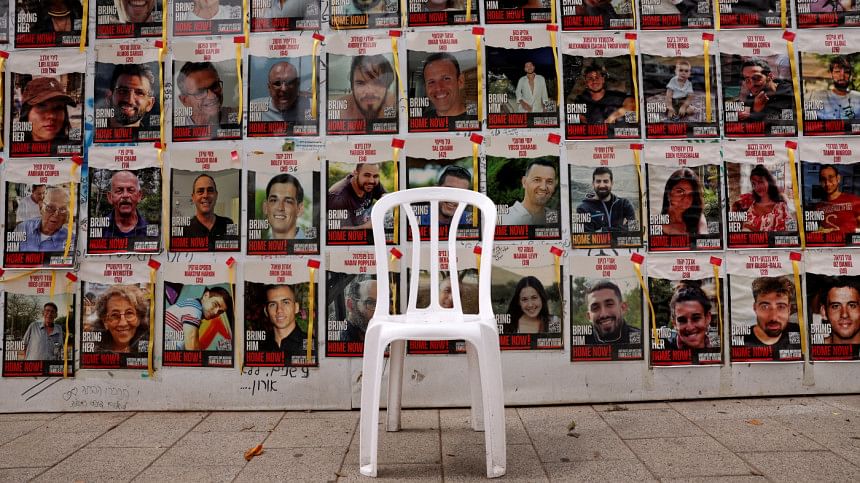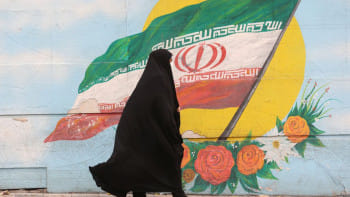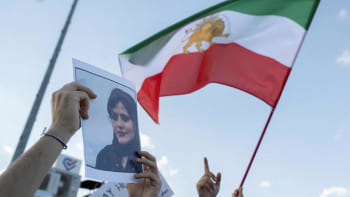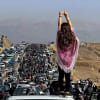Say their names to save their lives

"When you hung nooses around our youth's necks, you should've known one day someone was going to stand up"
– Toomaj Salehi
While the global media is busy focusing on how the Islamic Republic of Iran (IRI) is waging a proxy war against Israel, there's very little coverage on the war the IRI is waging against its own people. There's been some hue and cry about Mahsa Amini's murder at the hands of the notorious morality police in September 2022, which sparked nation-wide protests carried out by men and women alike, against a regime that, besides its multitude of corruptions, has established a gender-apartheid state since its inception in 1979. However, as a member of the Iranian diaspora, I feel it necessary to write about the latest injustices within the land of my roots.
While the world's attention is focused on the political tensions between Israel, Iran, and their allies, the IRI has used this opportunity as a cover to unleash a new wave of brutal crackdowns on Iranian women. Despite the lack of freedom of the press, citizen journalism has been eye-opening because it is through videos and photos leaked by the people, that we get to see how women refusing to wear the hijab are beaten, assaulted, and dragged into white vans by the morality police. Bodily bruises are the least of their problems; many are raped, and some are killed. Even minors are not spared. Iranian schoolgirls have been poisoned, and teenagers like Armita Gerawand (17), Sarina Esmaeilzadeh (16), and Nika Shakarami (16) have been found dead.
Sara Hossain, a barrister at the Supreme Court of Bangladesh and chair of the Independent International Fact Finding Mission on the Islamic Republic of Iran, led an investigation along with her team and spoke at the UN Human Rights Council in March 2024 against the brutalities of the regime. The mission's findings showed that "disproportionate force" was used against peaceful protestors, killing at least 551. These protestors were "viciously beaten and arrested while dancing, chanting, writing slogans, or simply honking car horns in peaceful acts of solidarity." Moreover, prisoners were "subjected to sexual and gender-based violence," "gang rape, rape with an object, beatings, floggings, and electric shocks." And worst of all, "children were subjected to extrajudicial killings, torture and rape, and held in detention along with adults."
Ironically, however, it is the men who are given the official death penalty through sham trials in kangaroo courts, the latest victim of which is 33-year-old dissident rapper, Toomaj Salehi, whose lyrics voice his outcry against oppression, injustices, and deprivation of liberties faced by Iranians under the now-45-year-old regime. Imagine if Tupac Shakur, a politically conscious activist and rapper, whose music is noted for addressing racism, police brutality, and marginalisation of African-Americans, was sentenced to death for his lyrics. Or imagine Bangladeshi rebel poet Kazi Nazrul Islam being handed out the death penalty for voicing his protest against colonialism, tyranny, and inequality. Toomaj Salehi is the Tupac or the Nazrul of Iran, and the beloved voice of Iranians. But he is now on state-sanctioned death row.
Toomaj was first arrested on October 31, 2022, after he publicly supported the Zan, Zendegi, Azadi (Woman, Life, Freedom) movement. After many months of solitary confinement as well as physical and psychological torture, he received a brief release on bail on November 18, 2023. On November 27, 2023, he shared a video revealing that he refused to admit to false charges despite the employment of intimidation tactics and in spite of various forms of torture and ill-treatment used to get a forced confession out of him. This gutsy video had severe repercussions. Three days later, Toomaj was violently abducted and imprisoned once again. He was charged with "moharebeh" (waging war against God) and "spreading corruption on earth," and sentenced to death by the Islamic Revolutionary Court. If this sentence goes through, "the world's bravest rapper", as he has been called by various international news outlets, will be lynched from a crane, for exercising his right to freedom of expression.
So what can we, as Bangladeshis, do for Toomaj or others like him? We need to say their names to save their lives. This has worked in the past. For example, in 2020, when three young Iranian men were handed out the capital punishment for protesting against high gas prices, a wave of online protests took place, with over 10 million retweeting the hashtag #StopExecutionsInIran, which resulted in the suspension of those executions. Now, more than ever, we need to mobilise to save the life of Toomaj Salehi, an innocent victim of a regime that, according to the BBC, is the world's second-most prolific executioner, and according to Amnesty International, executed 853 people in 2023 alone. Let us not underestimate the power of hashtag activism—an influential tool for raising awareness and promoting social and political change. All we need to do is use the following hashtags on social media: #FreeToomaj #ToomajSalehi #StopExecutionsInIran
Let Toomaj Salehi's words strike a chord in our hearts, a chord that will spur action, no matter how small: "If you've seen people's pain/ but you've turned a blind eye/ witnessed the oppression of the innocent/ and just walked by/ you're an accomplice to the oppressor/ you, too, are a criminal" (from his song Soorakh Moosh, meaning "Rat Hole").
May we not be apolitical at the hour of need; may we not be indifferent in the face of injustice.
Noora Shamsi Bahar is a senior lecturer at the Department of English and Modern Languages, North South University, and a published researcher and translator.
Views expressed in this article are the author's own.
Follow The Daily Star Opinion on Facebook for the latest opinions, commentaries and analyses by experts and professionals. To contribute your article or letter to The Daily Star Opinion, see our guidelines for submission.

 For all latest news, follow The Daily Star's Google News channel.
For all latest news, follow The Daily Star's Google News channel. 











Comments